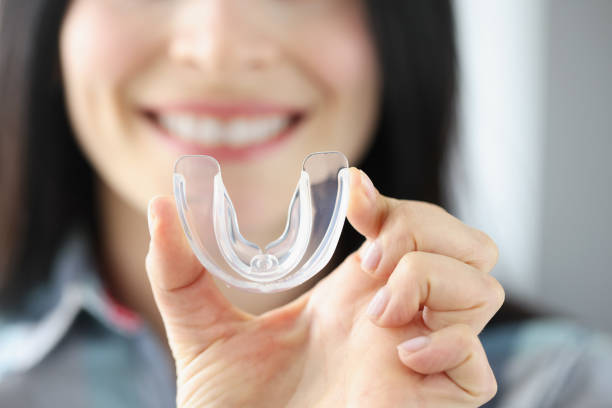
How to Know If You Need a Night Guard: Signs and Symptoms of Teeth Grinding
In this comprehensive guide, we will delve into the world of Night Guard for Teeth Grinding, helping you understand the signs and symptoms that indicate the need for a night guard. We aim to provide you with a detailed overview so that you can take proactive steps towards protecting your dental health and overall well-being.
Understanding Teeth Grinding
Teeth grinding, also known as bruxism, is a common dental condition that involves the involuntary clenching and grinding of teeth. While occasional teeth grinding might not be a cause for concern, persistent and severe bruxism can lead to various dental issues and discomfort. Identifying the signs and symptoms is crucial for seeking appropriate treatment, and that’s where we come in.
The Telltale Signs
1. Morning Jaw Discomfort
One of the early indicators of teeth grinding is waking up with a sore or stiff jaw. If you consistently experience discomfort upon waking, it could be a result of nighttime teeth grinding.
2. Tooth Sensitivity
Do you find yourself wincing when consuming hot or cold foods? Heightened tooth sensitivity could be linked to grinding. The constant pressure on your teeth can wear down the enamel, making them more susceptible to sensitivity.
3. Headaches and Facial Pain
Frequent unexplained headaches or facial pain, especially around your temples, could be an indication of bruxism. The excessive pressure from grinding can lead to tension and discomfort in these areas.
4. Worn Tooth Enamel
A dentist can detect worn enamel during regular check-ups. If your enamel is eroding faster than usual, it might be due to grinding. This can lead to increased dental sensitivity and other oral health concerns.
5. Disrupted Sleep Patterns
Teeth grinding often occurs during sleep, and you might not even know you’re doing it. If you experience restless nights, accompanied by grinding sounds, you could be grinding your teeth subconsciously.
Assessing Your Risk
Certain factors can increase your likelihood of experiencing bruxism. Stress and anxiety are significant contributors, as they can lead to muscle tension in the jaw. Lifestyle factors, such as alcohol consumption and smoking, can also play a role. Furthermore, bruxism can sometimes be a side effect of certain medications or medical conditions.
The Importance of a Night Guard
If you suspect you have bruxism or have noticed any of the signs above, it’s essential to take action. Consulting a dentist is the first step towards diagnosis and treatment. In many cases, a night guard is recommended.
What Is a Night Guard?
A night guard is a custom-fitted dental appliance that acts as a protective barrier between your upper and lower teeth. It helps alleviate the pressure and friction caused by grinding, preventing further damage to your teeth and relieving associated discomfort.
How Does It Help?
Wearing a night guard offers multiple benefits:
- Teeth Protection: The primary purpose of a night guard is to protect your teeth from the damaging effects of grinding. It acts as a cushion, absorbing the force and preventing enamel erosion.
- Pain Relief: By creating a barrier between your upper and lower teeth, a night guard reduces muscle tension in the jaw, alleviating morning soreness and headaches.
- Improved Sleep: A night guard promotes better sleep patterns by minimizing disruptive grinding noises and relaxing your jaw muscles.
- Long-Term Oral Health: Preserving your tooth enamel and oral health is vital for the long term. A night guard can help prevent the need for extensive dental work down the line.
Seeking Professional Help
If you’re experiencing any of the symptoms associated with teeth grinding, it’s crucial to seek professional guidance. A dentist can assess your condition, determine the severity of your bruxism, and recommend the most suitable treatment plan.
Final Thoughts
In conclusion, understanding the signs and symptoms of teeth grinding is paramount for maintaining optimal oral health. Ignoring these indicators could lead to irreversible damage and discomfort. If you suspect you might be grinding your teeth, don’t hesitate to consult a dentist. A custom night guard could be the solution you need to protect your teeth, alleviate pain, and ensure a good night’s sleep.
Remember, your dental health plays a significant role in your overall well-being. Take the first step towards a healthier smile by addressing the issue of teeth grinding promptly.
Leave a reply
